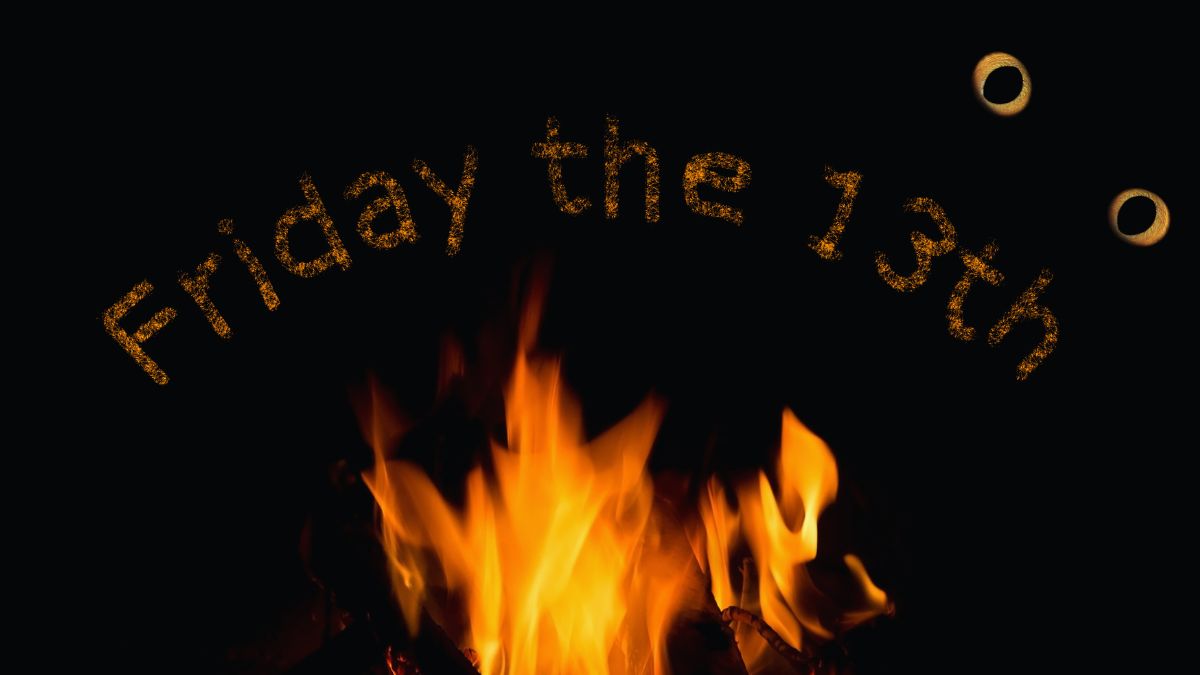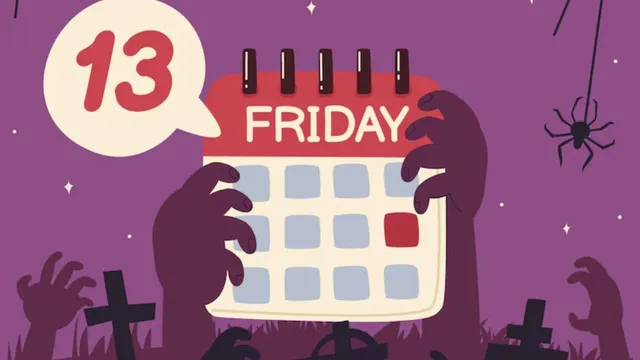- By Kashish Rai
- Fri, 13 Sep 2024 10:02 AM (IST)
- Source:JND
Friday the 13th is a day that sparks superstition and intrigue. This infamous date has been associated with bad luck and misfortune for centuries. Many believe that the combination of Friday, considered an unlucky day, and the number 13, thought to be irregular and incomplete, creates a perfect storm of ill fate. Whether you're a believer or not, Friday the 13th has become a cultural phenomenon, inspiring films, books, and cautionary tales, reminding us to be mindful of the power of superstition.
This Friday, September 13th, 2024, is a day to approach with caution! Falling on a Friday, the 13th of the month is considered an unlucky combination by many. Whether you believe in superstitions or not, it's a day to be extra mindful and prepared for any unexpected twists or turns.
Let us know why Friday the 13th is considered inauspicious below:
Friday The 13th Meaning:
Last Supper Connection
The Last Supper, where Jesus was betrayed by Judas Iscariot, is believed to have occurred on a Friday, with 13 people present. This event marked the beginning of Jesus' journey to the cross, symbolizing bad luck and treachery. The combination of Friday and 13 has since been associated with misfortune, reminding us of the ultimate betrayal.
Knights Templar Massacre
On Friday, October 13, 1307, King Philip IV of France ordered the mass arrest and execution of hundreds of Knights Templar, a powerful military order. This event led to the downfall of the Templars, cementing the date's reputation for bad luck and catastrophe. The sudden and brutal nature of the event solidified the superstition surrounding Friday the 13th.
Norse Mythology
In Norse mythology, the god Odin had 12 companions at a dinner party, but when a 13th member joined, the god Loki, it led to the death of one of the gods. This mythological story reinforces the idea that 13 is an unlucky number, especially when combined with the already ominous Friday.

Friday the 13th is a superstition-filled day, associated with bad luck, misfortune, and unexpected twists, sparking caution and intrigue worldwide. (Image Source: Canva)
Ancient Roman and Egyptian Influences
Ancient Romans considered Friday an unlucky day due to its association with the goddess Venus, who was revered on the sixth day of the week. Similarly, Egyptians believed that 12 was a complete number, representing perfection, while 13 was irregular and incomplete. These ancient influences have contributed to the widespread superstition surrounding Friday the 13th.
Cultural Reinforcement
The superstition surrounding Friday the 13th has been perpetuated through literature, film, and popular culture. Thomas W. Lawson's 1907 novel "Friday, the Thirteenth" and the 1980 horror movie "Friday the 13th" have further solidified the date's reputation for bad luck and terror. This cultural reinforcement has ensured that the superstition remains alive and well, influencing people's perceptions and behaviours on this day.
ALSO READ: Why Number 13 Is Considered Unlucky? Know 7 Astrological Reasons
ALSO READ: Does Changing Name Change Destiny And Bring Success? Astrology Explains
(Disclaimer: This is based on general public information. Jagran English does not confirm its veracity. Before adopting any measures, consult an expert in the relevant field.)

